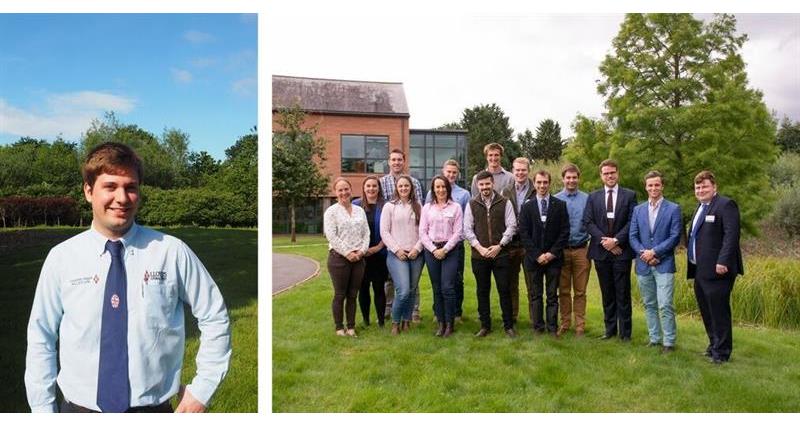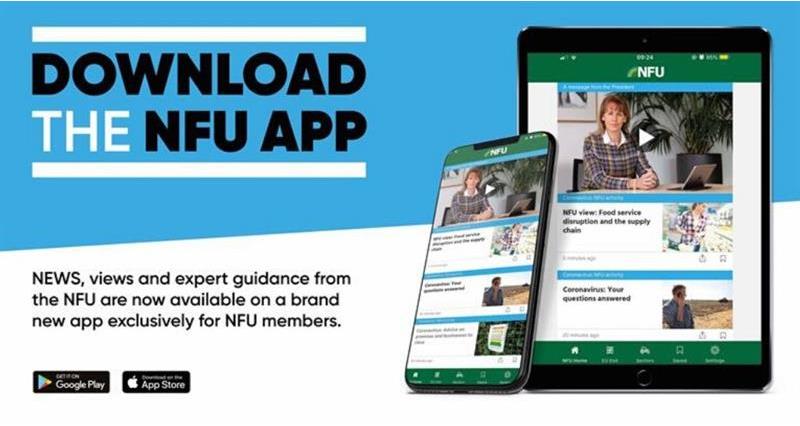During COVID-19, the NFU and the Poultry Industry Programme had to change their approach and adapt quickly like many other businesses during these strange times. The current programme, which started back in September 2019, was briefly put on hold in March and has since been reinstated by remote video conferences which seem to have become the norm these days!
Will's second blog demonstrates how farmers have embraced and used technology during COVID-19, read it here.
One of the first virtual sessions was on European agriculture policy and involved a speaker from the NFU's BAB office in Brussels. Robin Manning, who has recently joined the NFU as BAB Director, has assumed the role to represent agri-food policy which in effect is the voice of the UK farming unions in Brussels. This is a crucial role, particularly as everything unfolds related to Brexit.
It is important to understand that COVID-19 has taken over and has been at the forefront of any government and rightfully so, although the UK Brexit deal is still ongoing and one of the biggest changes in our lifetimes, that will go down in history, which is why it is absolutely crucial that collectively we achieve the right deal come 31 December 2020.
Each sector, no doubt, has a slightly different stance on how the trade deal should be, however we all share the same agenda in trying to secure a successful and bright future for generations to come.
Robin gave a brief overview of the industry and the NFU’s involvement to set the scene of what the Brexit deal could look like. He explained that the NFU has an office and representatives in Brussels and has been operational since 1972. With the EU being our largest trading partner, this is likely to continue when we are outside of the EU as we will still be trading with the EU.
The NFU represents 46,000 farm businesses in England and Wales and we should not forget that behind those farms are families. This is not just a statistic, these are livelihoods which will be affected by any deal and will last for generations to come. It is understood and recognised that the UK has the highest of welfare standards across the world and we are not prepared to undermine these standards by importing produce which has not met the same criteria.
So that we could understand where we sit in the world market, Robin shared facts which included the UK being a net importer of agri-food goods and 60% of food consumed in the UK is grown or produced here.
We do, however, export into more valuable markets, for example, there is a poor market for offal in the UK and poultry dark meat has less demand, being an egg producer, this wasn’t something I necessarily knew a lot about. Therefore, it is valuable for us to export these products, and it is all about the balance of trade to make a successful deal.
A few facts to set the scene include the UK being the world’s sixth largest agri-food importer and third largest in Europe. Although regarding exports we are the world’s 16th largest exporter and seventh largest in Europe, therefore it is important to understand our markets and what we trade currently.
The position the UK finds itself in today would be recognised as a ‘transition period’ inevitably leading to an end date which is the 31 December 2020.
To understand the EU tariffs, currently they are set at prohibitive levels shielding domestic markets from global competition. For example, the tariff on sugar is currently set at €339 per tonne imported, meaning it is not cost effective in some markets. There are also quotas set out, for example 228,000 tonnes per year of lamb agreed from New Zealand into the EU market and the UK has agreed and committed to 114,000 tonnes from this. Other quotas and deals with third world countries include EBA’s (Everything But Arms), this basically means there is unlimited quantity at zero rate of duty.
During our virtual session we were also given insight into the NFU's External Affairs team and the Agriculture Bill being set out which basically takes into consideration many important areas affecting all sectors of the industry.
These areas include labour from farm to fork, environmental policy, arrangements on subsidy, unfair trading practices, the Immigration Bill and mandatory contracts from processors etc.
The future farm policy in terms of subsidy is being looked at in great depth and the Basic Payment Scheme (BPS) as we know it will change somewhat and is being phased out in the next seven years. We will soon hopefully understand more about and enter the ELMS policy which will slowly be rolled out and fully operational over the seven-year timeframe.
There certainly is a lot of change happening at the minute and I can’t see that changing for a while yet!
More from NFUonline:

